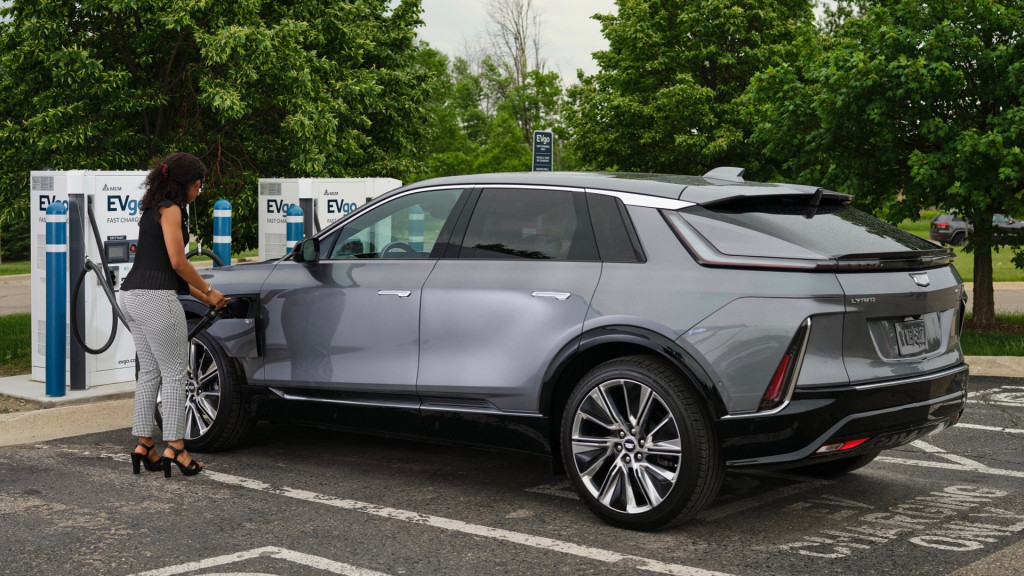The first charging station funded by the Biden administration's National Electric Vehicle Infrastructure (NEVI) program is now online.
Located at a Pilot Travel Center along Interstate 70 west of Columbus, Ohio, the station opened Dec. 8, according to a press release from the office of Ohio Governor Mike DeWine. Equipped with DC fast chargers from EVgo, it can charge four vehicles simultaneously at 175 kw or a single vehicle at 350 kw.
"Electric vehicles are the future of transportation," DeWine said in a statement, "and we want drivers in Ohio to have access to this technology today."

GMC Hummer EV at Pilot travel center
Ohio has been ahead of other states throughout the process. It was the first release a request for charging station proposals last year, the first to announce sites, and the first to break ground on a charging site under the NEVI program, last October.
Officials expect construction to begin soon on "two dozen" fast charging stations funded by the NEVI program. Ohio will get $140 million from the program over five years to install chargers in multiple phases. The first phases focuses on Interstates, with future phases aimed at filling in "infrastructure gaps" along other routes. All charging sites in the first phase are expected to be operational by the end of 2024.
Other states are expected to follow with their own charging stations soon. All states submitted plans for how they would use allotments of the $7.5 billion in NEVI funding on time, by Aug. 1, 2022. The White House said Monday that Vermont, Pennsylvania, and Maine have broken ground on stations, with "additional activity" expected in other states "in the coming weeks."

2023 Cadillac Lyriq at EVgo DC fast-charging station.
Implemented as part of the Bipartisan Infrastructure Law, NEVI sets up two buckets of funding. One is for national EV charging infrastructure, the other is for an interconnected network for "data collection, access, and reliability."
The latter led to the formation of the ChargeX Consortium, which could make some meaningful contributions on charger reliability and centralize some data that's not proprietary.












